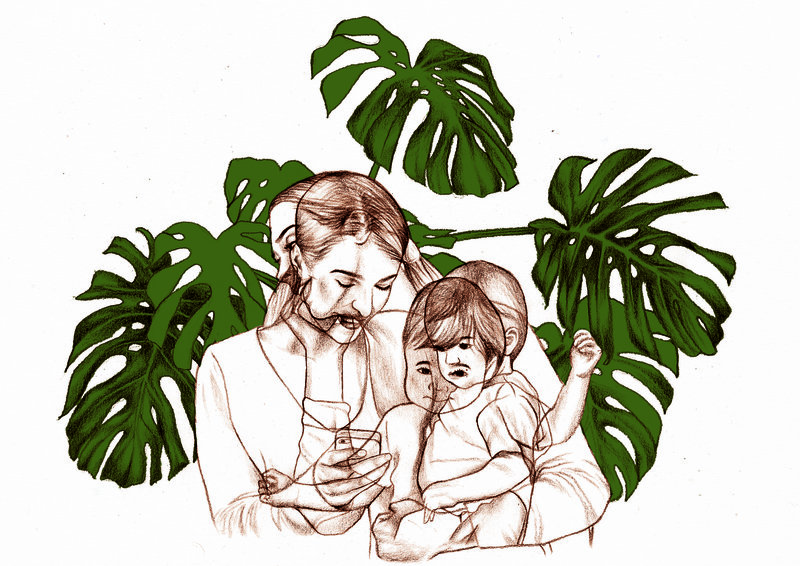Four days before Mother’s Day, Lorenzo “Lanz” Legarda Leviste, the son of senatorial aspirant Loren Legarda, put out a seething takedown of his mother on an online news site. The young man expressed his grief and anger at the fact that Legarda is running under the slate of Ferdinand Marcos Jr. and Sara Duterte.
In the piece, the elder son of the Antique representative and former Batangas governor Antonio “Tony” Leviste wrote that for weeks he has been debilitated by his mother’s decision, adding, “that Loren Legarda lost her son forever because of this.”
(While Legarda has yet to respond, her Facebook page continues to have campaign updates. Among these is vice presidential candidate Duterte warmly welcoming her to Pastor Apollo Quiboloy’s —one of the US Federal Bureau of Investigation’s most wanted—television network, oddly enough, with flowers as an advance Mother’s Day gift.)
[READ: Can a podcast transform Filipino youth’s political indifference into action?]Meanwhile, Wanna Ver, the daughter of Ferdinand Marcos’s right-hand military officer General Fabian Ver, through a published piece by the Philippine Center for Investigative Journalism, apologized for her father’s role during the turbulent martial law era.
A public disownment is an unthinkable thing in the country where reverence for parents and the elderly is prized. But the contentious election season has Filipinos young and old considering what values they must uphold—including what family really means.

A clash between utang na loob and accountability
Part of what left most people stunned by these two is the blatant and public dissociation, acknowledgment, and disownment these children exhibited, something unheard of in the mainstream because again, in the Filipino household, families come first. There’s no use arguing over politics, you’ll often hear at dining tables. It’s rude. It’s impolite. To challenge those who sit at the kabisera, even within the confines of a roof where generations live “harmoniously,” is uncouth, they say.
Ver’s daughter said, “In our culture, we are taught to respect our elders—you know, utang na loob, we are indebted to them. But I think it’s important to do our own research and to forge our own beliefs, look outside of what our family told us to believe.”
If children are held accountable by their parents, who holds their parents accountable?
While our algorithm-curated social media feed of mostly millennials and Gen Zs lauded Lanz for his bravery to expose what would otherwise be advised by elders to be “kept within the family,” the overwhelming sentiment on each post about it on news sites is a sad react.
Presumably, these come from those who insist on the power dynamics of a traditional Filipino household. But maybe for others, the sadness stems from a recognition that other means to communicate have failed, and there is little else that could be done but to accept that the values of a parent—even one we admire—are irreconcilable with ours.
[READ: Sometimes, mothers don’t know best—and that’s okay]Another part of the shock factor could be that Filipinos cannot imagine a fractured relationship between a child and a mother. Children are taught to not only respect their parents but be understanding of them, even if they feel wronged. But it seems not a few Filipino kids are realizing respect should go both ways, and that age does not equate to moral ascendancy. If children are held accountable by their parents, who holds their parents accountable?
It could be debated if disowning is the best way to hold a person accountable, or at least to stop enabling a loved one’s problematic behavior. But unless we are part of the relationship, it would be hard to pass judgment on what the aggrieved person feels is necessary for their own well-being. If anything, a child having their own critical view reflects on how parents were successful in raising a child who could think on their own.
So what’s changed enough to encourage younger generations to speak up? Maybe it’s the realization that the choices they make now are not just for their own but that of the future generations. Not to say all parents are selfish—in fact, it can be argued that this value of selflessness is learned early on and something we take from our parents and the adults who looked after us.
Call it optimism, believing in something greater than ourselves, greater than what bonds us as a family but as a nation. Maybe even call it the start of the end of generational trauma. If only more of those who came before us could understand this, maybe we’ll stand a chance.




